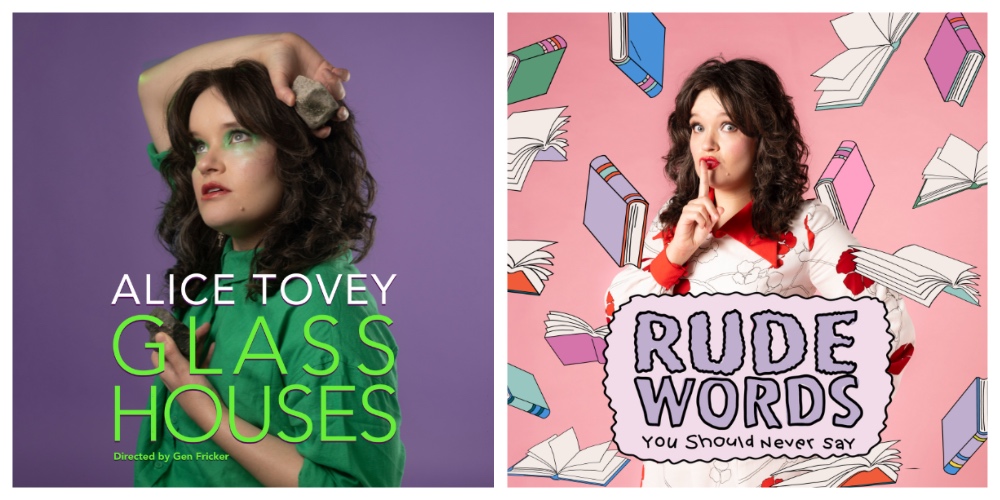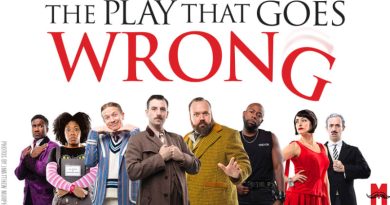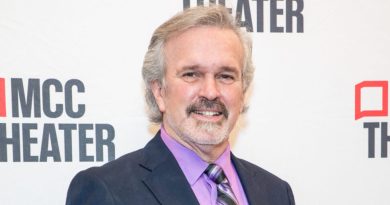Alice Tovey on Prison, Comedy & The Resilience of Family
Stepping onstage to tell your father’s prison story moments before your wedding day might not seem like prime comedic material, yet Alice Tovey seizes this unlikely reality and transforms it into GLASS HOUSES—an unforgettable mix of stand-up, storytelling, and original songs. Fresh from her success writing for GRUEN, QUESTION EVERYTHING, and THE WEEKLY WITH CHARLIE PICKERING, Tovey takes Melbourne International Comedy Festival audiences on a journey that’s messy, complex, and brimming with heart.
Through tales of career criminal bakers, family photobooth disasters, and delicate wedding nerves, Tovey pushes past common true-crime tropes to highlight the overlooked impact that incarceration has on relatives at home. It’s a comedic tapestry woven from earnest narratives: while her dad’s jail sentence may be the hook, the show’s real theme is love—how it endures, evolves, and triumphs even under unimaginable strain.
Once a classically trained opera singer, Tovey’s musical chops lend a stirring edge to her sly wit, creating performances that resonate deeply. She’s already garnered multiple Greenroom Award nominations, an AWGIE nod, and recognition as a gifted writer-director in the horror genre. Now, in GLASS HOUSES, Tovey invites audiences of all stripes into her family portrait, reminding us that laughter can heal—and maybe even change the world.
Your show GLASS HOUSES deals with a deeply personal story—your father’s imprisonment and the impact on your family. What compelled you to share such an intimate and potentially painful subject on stage?
Because I love my family and I’ll never get sick of telling people that. But I think you’ve hit the nail on the head with that question. People expect stories of Australian prisons to be shrouded in pain and shame. Don’t get me wrong, there was a lot of pain. But ultimately there was joy and love and bizzare, funny moments. Also, I wanted to write this show because we don’t often think about the impact that imprisonment has on families. We think of someone going to jail as them disappearing in some kind of Thanos snap into dust. But life goes on. This is a story about resilience and what happens when we move forward together.
GLASS HOUSES blends comedy, storytelling, and original songs. How did you balance the raw emotional weight of the prison storyline with the playful nature of comedy and cabaret?
Because I’m a big clown. Raw emotion is funny. What’s funnier than scooping out your guts in front of an audience and being like “do your guts also look like this or should I see a doctor?” This is a show with emotional heft to it, but make no mistake that it is funny. I have IBS but I am not trauma dumping with this show. This is a comedy show first and foremost. I’m there to make the audience care, but mainly laugh.
Prisons often feel distant for many people—something happening “behind closed doors.” How do you hope your audience’s perception of the prison industrial complex might shift after seeing GLASS HOUSES?
My family are straighty-one-eighty kinds of people, and this still happened. It can happen to anyone. You could go to jail, reader. While no, my dad wasn’t Walter White. It was white collar shit so white it was translucent. So white it drove a Volvo. But regardless of why you’re in jail, there is an undeniable fact: 100% of people in prison are people. If people leave knowing that, then I’ve done my job. That should be enough for us to care about how they are treated. Usually, it’s not. I think people know very little about our prison system in Australia. The details of life inside are so rough you can’t help but laugh. We comfort ourselves in Australia with an “at least we’re not as bad as America” mentality. But guess what babes? We are. Australia has the most inmates in for-profit prisons in the world. First Nations people in Australia are the most imprisoned people in the world. We’re the baddies. Is that who we want to be as a nation?
You describe GLASS HOUSES as a “love letter” to family, yet you also highlight its messiness and complexity. What did you discover about your own family bonds while creating and performing this piece?
That the mess is the strength. When you see your family, and see your parents, as complete people capable of mistakes, you love them more than you ever thought you could. Also, they’re mental.
In telling this story, were there any moments where you worried you were revealing too much, either about your father or about yourself? How do you decide where to draw the line between open honesty and privacy?
All of the stories I’m telling are true, but small details may be changed. My parents are private citizens who do not share my pathological need to seek the validation of strangers. So if you’re coming to this show expecting gory details, names and shames, their credit card numbers, etc, then you will leave sorely disappointed. Their first names are Mum and Dad and they have no last names. Am I really Alice Tovey? Did AI generate my name and likeness? There are details in the show that are slightly changed or altered. Both for privacy’s sake and because I have a deeply held spiritual belief that I should not get sued.
You were once a classically trained opera singer and are now an alternative cabaret-comedian. How do these distinct performance skills inform your approach to a show like GLASS HOUSES?
It’s wild, hey? Learning classical voice technique has given me the vocal stamina to make it through the marathon of MICF. That and I grew up wanting to be Freddie Mercury. He went to Opera School and I’m like, “well, if it’s good enough for Freddie.”
Many people have preconceived notions about “criminals” and their families. Which stereotype or misconception did you most want to confront or challenge with GLASS HOUSES?
I’ve just dipped my toes into this world, and it’s enough to see that the prison system is broken. My dad was in on white collar, non violent charges. Boring bloody stuff. And even then, he experienced horrible cruelty. What I want people to take away is this. I’ve met people through this experience who have done some bad things. Some really bad things. But no one is defined by their worst mistakes. You are defined by how you learn from them. Yeah there are a handful of truly yucko people in this world, but the majority of people in prisons are people who made a mistake.
Can you share how the process of writing for shows like Gruen, Question Everything, and The Weekly with Charlie Pickering helped shape your comedic voice in tackling difficult personal narratives?
It’s amazing what writing for another person teaches you about being yourself. I’ve been a middle aged man on TV for years now, and I’m super grateful for that. I’ve learned how to hone a joke very quickly and trust my gut as to what’s gonna get a laugh. Sharpening my craft as a writer makes it much easier to tackle an emotional subject and trust that the writing will be fine.
In an age where true crime is almost a cultural obsession, your show goes a step further, revealing the emotional lives of those left behind. How do you see GLASS HOUSES fitting into—or standing apart from—our current fascination with true crime?
Would you believe that a lot of true crime is not, in fact, true. That’s to say, there is a certain style of true crime that doesn’t care if it dramatises the lives of those involved. Because it’s a form of entertainment, not a blow by blow account of fact. I think what you’ll find about most crime stories is that they are actually quite boring and the people behind them are more like you than you’d think. People are interesting, their actions less so.
If viewers leave GLASS HOUSES with only one takeaway about family, resilience, or empathy, what would you most want that to be, and why do you feel it’s so important in today’s world?
The world is so mean right now. It takes so much energy to hurl hurtful shit at someone you don’t know. Maybe I’m a bleeding heart lefty working for Big Woke, but what if we stopped being so judgemental towards the most vulnerable in our society? What if we used that energy that we use to complain and dob people into A Current Affair to fight fascists? Is this a revolution? Is it a comedy show? It could be both, or neither. Let’s find out.
Dates: 25 March – 6 April (No performance 29 March & 5 April)
Venue: Storyville Melbourne – 185 Lonsdale Street, Melbourne
Prices: $25 – $29
Tickets: CLICK HERE



